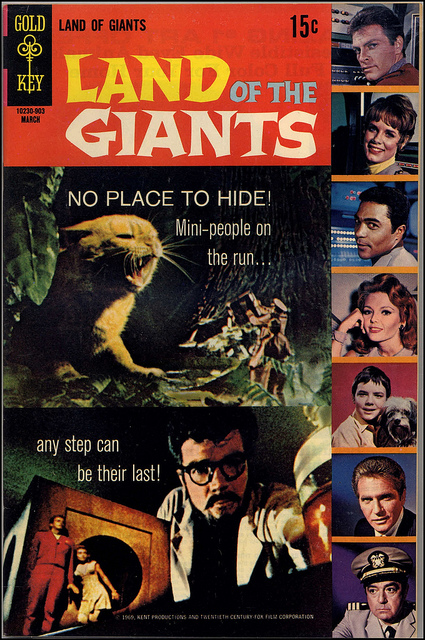Want to Create Good Habits? Fight "The Deceptive Mind" and "The Ugly Giant"
My obsession with human behaviors has compelled me to devour psychological books and TED talks for a long time. Among many topics in the realm of psychology, there’s one particularly intrigued me: habits. Annie Dillard said something utterly true: “How we spend our days is, of course, how we spend our lives.” Yet, we often get paranoid about what we do once in a while and pay little attention to what we do every day. Habits are just too present to notice, even when they lead to destructive consequences. Considering how our habits could make or break our success, spending time on understanding and mastering them –curing bad habits and creating good ones - might as well be the best investment to achieve our goals. To me, this is the ultimate form of self-leadership. I wrote two pieces about habits, discipline and routines on Leaner’s Journal before (“Morning Rituals” and “The Way of the Craftsman”). They both explained the significance of right habits in achieving our goals and fostering our creativity – the WHY. This piece is about the HOW. We are going to talk about forming new habits in this article.
Now, imagine a button, on which you can press to make yourself do things you know are important but feel procrastinated about. Imagine when sitting down each morning to write 1000 words for your novel becomes effortless. I know. I wish this button is sold on amazon too. But it is not. That button call “Right Habits” and we need to create this button for ourselves. And it’s not going to be easy.
First thing first, let’s try to understand how habits work. Charles Duhigg in his must-read book “The Power of Habit” explained it brilliantly using a term called “Habit Loop”. So basically in order to form new habits, we need to create a loop containing three components: the trigger, the action and the craving. The term “loop” also implies that this action will repeat itself again and again once the trigger and the craving are in place. The more we repeat the loop, the stronger it is imprinted in our brain. Because “as we repeatedly do a certain task the neurons, or nerve cells, make new connections through communication gateways called “synapses”. With repetition, the connections strengthen and it becomes easier for the brain to activate them.” (Greg Mckeown) That’s how we can gradually execute a task with ease.
Let’s dive in an example. Take anything: flossing teeth, for instance. It’s embarrassing to admit but for years I’d had problem with flossing my teeth. I knew it’s important and I wanted my teeth to be white, shiny and pretty. However, there is something about rubbing a strand of string floss across and around the teeth and gums that made my small brain impatient. There were just too many teeth and gums!
The first thing I did was to be mindful of my craving. I loved the clean and fresh sensation in my mouth after flossing. So before going to bed, in the bathroom, I imagined Mr. Meat, who came in my mouth during dinner, hosting a party between my teeth, where his friends Mrs. Cauliflower and Mr. Onion were devouring my gums. This uncomfortable feeling and my bathroom at that particular time, was my trigger. So I flossed my teeth with patience, satisfied that I was killing Mr. Meet and all his friends. When I finished, I celebrated the achievement by grinning at myself in the mirror, enjoying the fresh ad clean sensation, feeling dignified. Around a week later, flossing became easier. I didn’t need to think much before reaching my floss, which was placed at exact same spot. I didn’t have to will myself to floss anymore.
So the key is to turn on the light, get yourself out from a place of mindlessness. Pay attention, reprogram, and dim the light again to save energy. Let it flow, this time to the direction you wanted. Be the master of your habits. Most people let their habits dictate their day. Change the game! Make it work in your direction.
Of course, most of the things we need to deal with are a little more complicated than our teeth. To establish more demanding habits or routines, we need to pay attention to two enemies, both are created by ourselves. I call them “the deceptive mind” and “the ugly giant”.
The Deceptive Mind:
Talking about productivity, hardly anyone beats David Allen. In his classic book “Getting Things Done”, he said that “It’s really the smartest people who have the highest number of undecided things in their lives and on their lists. The most creative, sensitive and intelligent people! Because their sensitivity gives them the capability of producing in their mind lurid nightmare scenario about what might be involved in doing the project, and all the negative consequences that might occurs if it weren’t done perfectly.” Like when you stood at the bottom of a flight of stairs and your smart brain immediately projected, in slow motion, a 4D video of how you would be filthy in sweat, panting like a dog, crawling on the stairs while all the blood rushing to your face. You get the idea.
This understanding changed my life. First, I realized that I’d been very “smart” and “sensitive” and all. Second, I learnt that my mind is a good servant but a poor master. I needed to learn how to shut it down. And it has worked wonders for me.
I unplug “The Deceptive Mind” and put it to sleep by first being aware when it’s running its little deceptive show. Whenever I caught it trying to suck me in a negative pit, I would defend myself by shaking it off. (Sometimes literally share my head for it to fall off!) I breathed. I brought myself back from the future to the Here and Now.
The Ugly Giant:
After you’d unplugged “The Deceptive Mind”, you would need to avoid the “The Ugly Giant”.
We often make mistake of creating this big hairy audacious creature and let it get in our way. Like how after twenty years not working out, one day we announced to ourselves, and all our family members and colleagues that we would start exercise one hour every morning starting from tomorrow until the end of our lives. We all know how 90% of these people ended up. I myself did this.
It’s good to think big and have an ambitious goal. However it’s not the big thinking and the goal that drag us from our bed to the gym at six every morning. It’s the small steps that do.
Whenever the idea of one hour workout seems to daunting, I tried get myself out of my bed first. Some days it’s even hard to leave my warm blanket. I tried to move my feet, stretch my body, breath in the morning air, and open my eyes. One tiny baby step at a time.
This works particularly well when we face self-resistance, self-impulse, external obstacles. It is easy to will ourselves to do the right thing on good days. But, writers know, there are not so many days when we wake up to the sound of birds singing sentences and plots to our ears. The other day I woke up with a headache and a pain in my tailbone. (Yes, the lowest part of the spine that we put pressure on when we sit.)
I did not know why on earth this pain happened. But I decided to get on with my flow anyhow. I made myself a cup of tea; I played my favorite album of Ludovico Einaudi. The next thing I know I was picking up my pen, feeling its weight which I’d known so well, looking at its glossy black ink, waiting to be poured on the white page. Those are my triggers, which I’d like to call “rituals” because they are the harbinger of something scared, something I honored to do: to write what need to be written. The next thing I know, I was writing a messy first draft, like how the first draft of this entry was written.
That’s how you do it. One minuscule, tiny, baby step after another. Habits and routines are like flowing river; it carries you with its force. So build for yourself a river and let it take you to your dreams. 
What about you?
Which habits are you trying to form?
How are you going to use the trigger, the action and the craving?
How can you fight your own "Deceptive Mind" and "Ugly Giant"?


